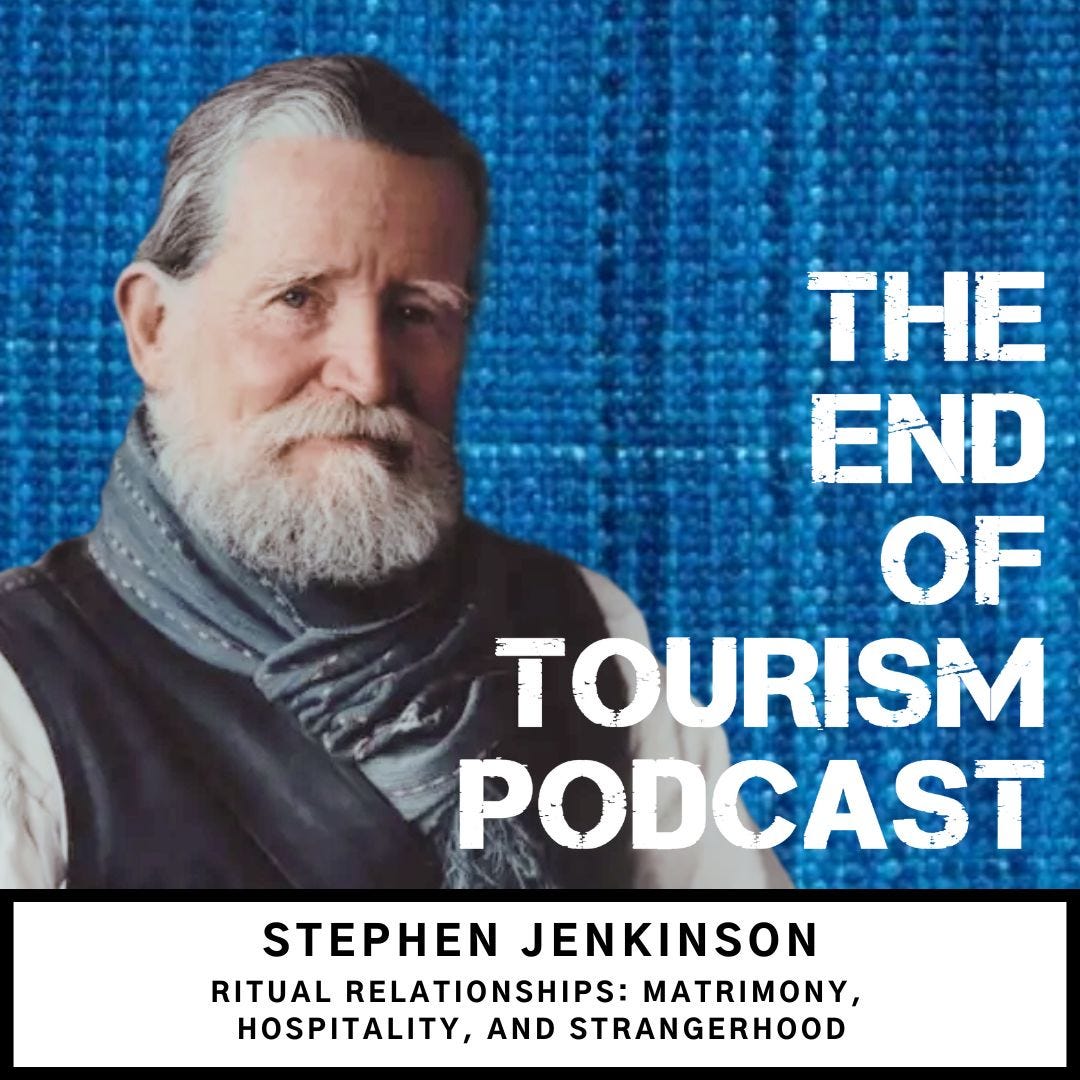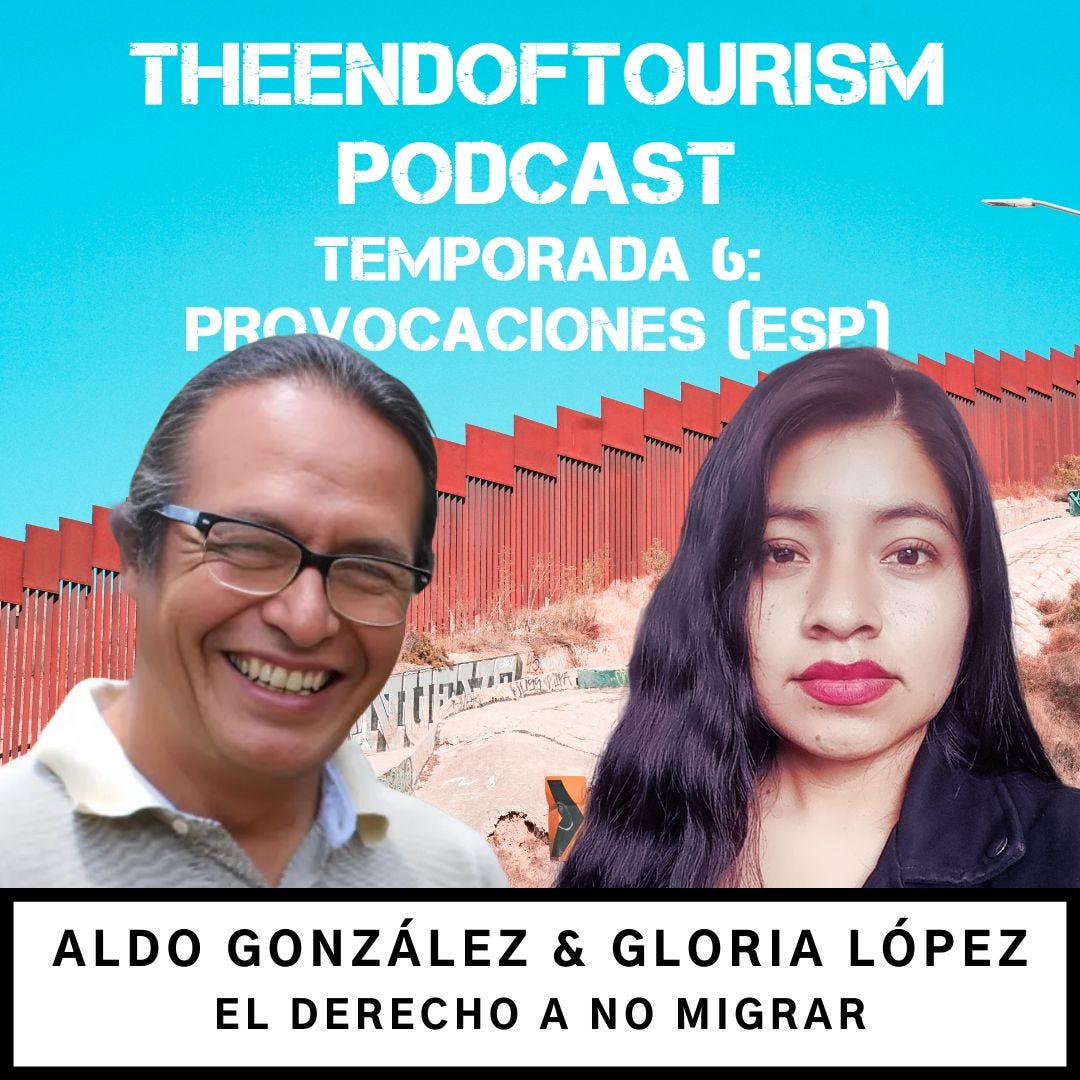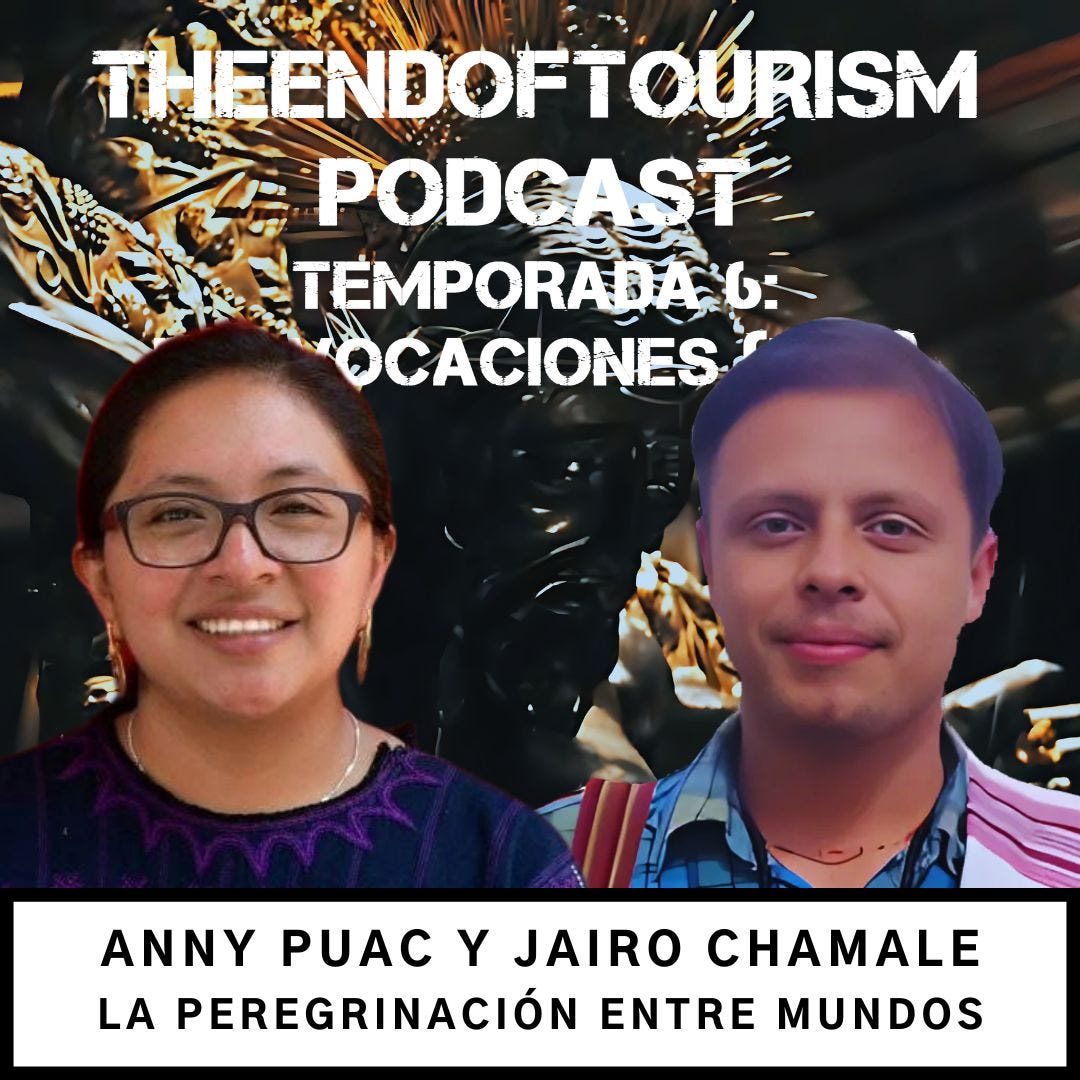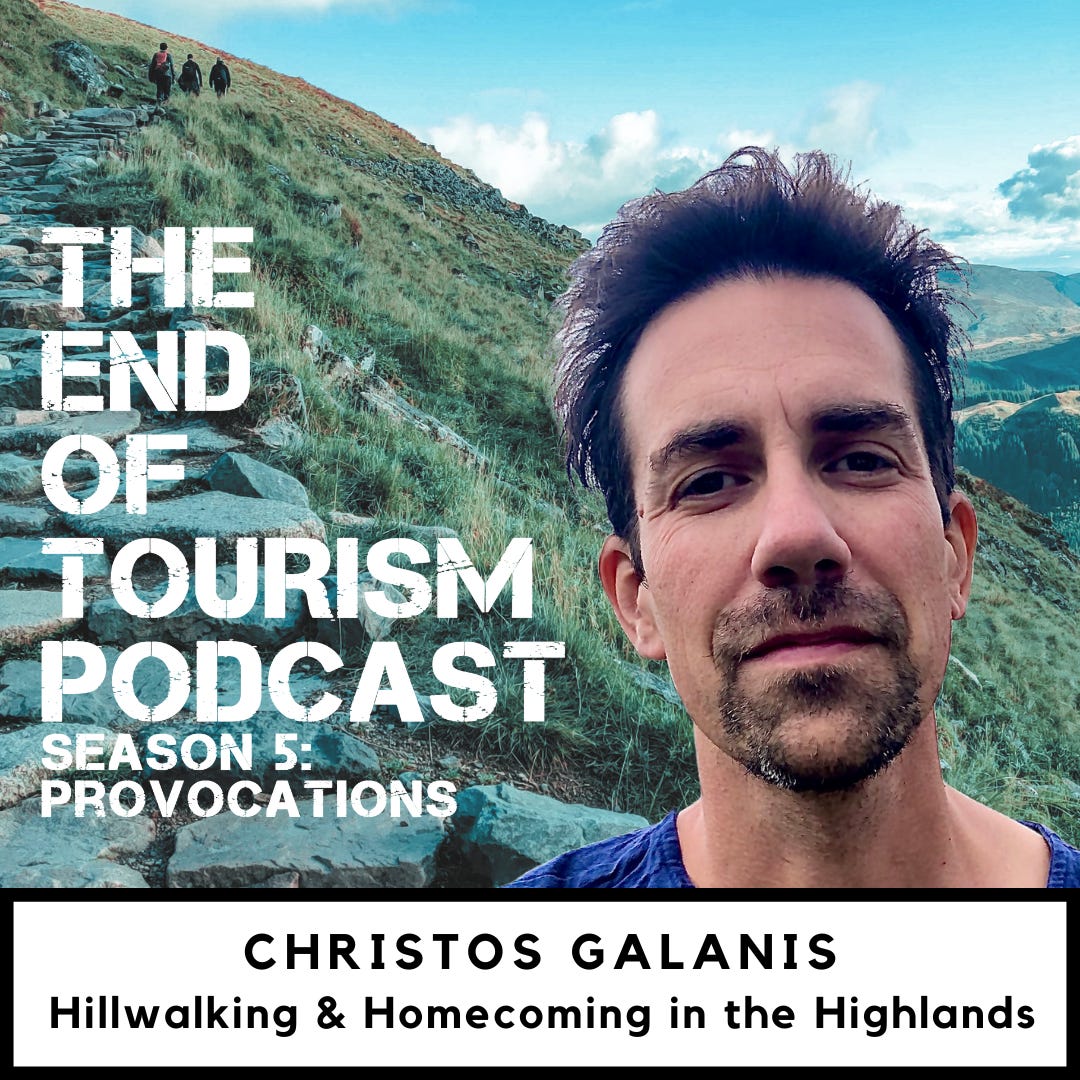S5 #1 | The Right to Stay Home w/ David Bacon
Description
On this episode, my guest is David Bacon, a California writer and documentary photographer. A former union organizer, today he documents labor, the global economy, war and migration, and the struggle for human rights. His latest book, In the Fields of the North / En los campos del norte (COLEF / UC Press, 2017) includes over 300 photographs and 12 oral histories of farm workers. Other books include The Right to Stay Home and Illegal People, which discuss alternatives to forced migration and the criminalization of migrants. Communities Without Borders includes over 100 photographs and 50 narraatives about transnational migrant communities and The Children of NAFTA is an account of worker resistance on the US/Mexico border in the wake of NAFTA.
Show Notes:
David’s Early Years
Learning about Immigration through Unions
The Meaning of Being Undocumented
NAFTA and Mexican Migration
The Source of Corn / Maize
Binational Front of Indigenous Organizations / Frente Indigena de Organizacaions Binacionales
The Right to Stay Home
Andres Manuel Lopez Obrador (AMLO) Campaign
The Face & History of Immigration in the USA
Immigration Reform and Amnesty
The Violence of Fortuna Silver Mines in Oaxaca
Solidarity, Change and Optimism
Homework:
The Right to Stay Home: How US Policy Drives Mexican Migration
In the Fields of the North / En los campos del norte
Illegal People: How Globalization Creates Migration and Criminalizes Immigrants
Communities without Borders: Images and Voices from the World of Migration
The Children of NAFTA: Labor Wars on the U.S./Mexico Border
Transcript:
Chris: [00:00:00 ] Welcome to the End of Tourism podcast, David. It's an honor to have you on the pod. To begin, I'd like to ask you where you find yourself today and what the world looks like for you there.
David: Well, I live in Berkeley, here in California, and I am sitting in front of my computer screen having just what I've been up to today before talking with you.
Chris: Hmm. Well, thank you so much for joining us, and thank you for your work. Perhaps I could ask you what drew you to the issues of labor and migration.
David: Sure. Well, I come from a kind of left wing union family, so I knew about unions and workers and strikes and things like that from probably since before I can remember. And so I was kind of an activist when I was in high school, got involved in the [00:01:00 ] student movement in the 1960s at the University of California, got involved in the free speech movement, got tossed out by the university, actually, and wound up going to work after that, really, because I got married, had a daughter, and I got married, had a daughter, and, I needed to get a job and, you know, worked for quite a while as a a printer in the same trade that my father was, had been in went back to night school to learn more of the, of the trade, how to do different parts of it, how to run presses and so forth and then got involved, this is, you know, in the late 60s, early 70s got involved in the movement to support farm workers, really, and I was one of those people, you know, if you're my age, you remember this, if you're younger, you probably don't, but we used to picket supermarkets to try to get them [00:02:00 ] to stop selling the grapes and the wine and the lettuce that was on strike, and we would stand out in front of Safeway and other supermarkets with our red flags with the black eagle on them, And ask customers, you know, not to go into the store, not to buy the products that farmworkers were on strike against.
And I got really interested in. I'm curious about the workers that we were supporting. You know, I grew up in Oakland and so I didn't know anything about farm workers, really. I didn't know anything about rural California, rural areas, didn't speak Spanish didn't know much about Chicano, Latinos.
Oakland's a pretty diverse city, but in the area of Oakland where I grew up in you know, in our high school, you know, the students were African American or they were white, and that was a big racial question in, in school when I was in high school. So I grew up not knowing any of these things.[00:03:00 ]
And Because I was involved in, you know, standing out in front of these stores and supporting workers, I, you know, began wondering, who are these workers that we're supporting? And eventually, I went to work for the union. I asked a lawyer friend of mine who was in their legal department if they needed any help, and of course he said yes.
I went down to, Oxnard and de Santamaria began working for the union, originally taking statements from workers who had been fired because of their union activity. I didn't know much Spanish, so I had to learn Spanish on the job. Fortunately, you know, the workers were very patient with me and would help me learn, help me correct my still bad pronunciation and bad grammar.
And, and I began to learn. And that process has been going on ever since, really. That was a, that was a formative time in my life. It taught me a lot of [00:04:00 ] things. It taught me about, you know, the culture of. farm workers who were mostly Mexican in those years, but there were still a good number of Filipino workers working in the fields.
That eventually led me to the woman I eventually married, my wife, who was the daughter of of immigrants from the Philippines from a farm worker family. So I learned about that culture and I began learning about immigration, which I hadn't really known anything about growing up. Why people come to the U.
S., what happens to people here. I, I saw my first immigration raid. When I was an organizer, I later became an organizer for the union as my Spanish got better. And I remember going to talk to a group of workers that I had met with the previous night, who were worked up in palm trees picking dates.
And I went down to the date grove, this was in the Coachella Valley, and there was this big green van, and there were the [00:05:00 ] workers who I'd been talking to the previous night being loaded into the van. I was just You know, really shocked. The van took off. I followed the van all the way down to the Imperial Valley, to El Centro, where the detention center was.
Stood outside the center trying to figure out what the hell is going on here. What am I going to do? What's going to happen to these people? And that was sort of an introduction to the meaning of being undocumented, what it meant to people, what could happen. And that made me an immigrant rights activist, which I've also been ever since, too.
But also, over time, I got interested in the reasons why people were coming to the U. S. to begin with. You know, what people were finding here when people got here was very, very difficult work, low pay, immigration raids, police harassment, at least, and sometimes worse than that, poverty. You know, Why leave Mexico if this is what you're going to find?[00:06:00 ]
And it also made me curious about the border. And so that also began something that has continued on in all those years since. I eventually went to the border, went to Mexico, began getting interested and involved in Mexican labor politics, supporting unions and workers in Mexico, you know, doing work on the border itself.
After the Farm Workers Union, I worked for other unions for A number of years and they were generally reunions where the workers who were trying to join and we were trying to help were immigrants. So the government workers union, the women in the sweatshops sewing clothes or union for factory workers.
And so my job was basically to help workers organize and. Organizing a union in the United States is like well, you know, people throw around this word, you know, this phrase class war and class warfare pretty freely, but it is like a war. You know, when [00:07:00 ] workers get together and they decide they want to change conditions and they want to you know, get the company to, speak to them and to deal with them in an organized way.
They really do have to kind of go, go to war or be willing to, for the company to go to war with them. You know, really what people are asking for sometimes is pretty minimal, you know, wage raises or fair treatment at work or a voice at work. You know, you think, you know, what's wrong with that. But generally speaking when employers get faced with workers who want to do that they do everything possible to try and stop them.
Including firing people and harassing people, calling them to meetings, threatening people, scaring people. You know, there's a whole industry in this country that consists of union consultants who do nothing but, you know, advise big companies about how to stop workers when they, when they try to organize.
So that's what I did for about 20 years. Was help workers to get organized, form a union, get their bus to sit down and talk [00:08:00 ] to them, go out on strike, do all those kinds of things. And eventually I decided that I
























